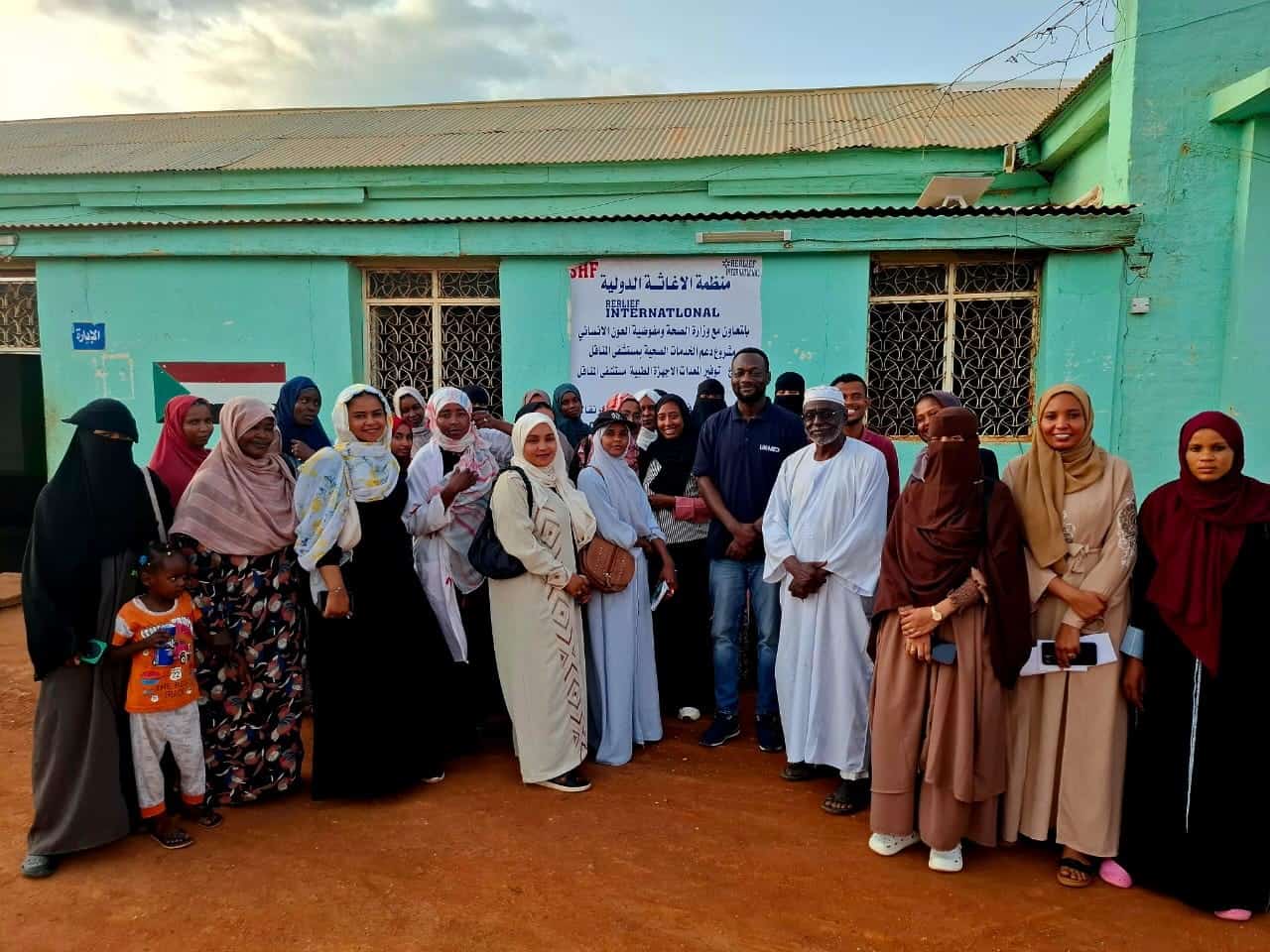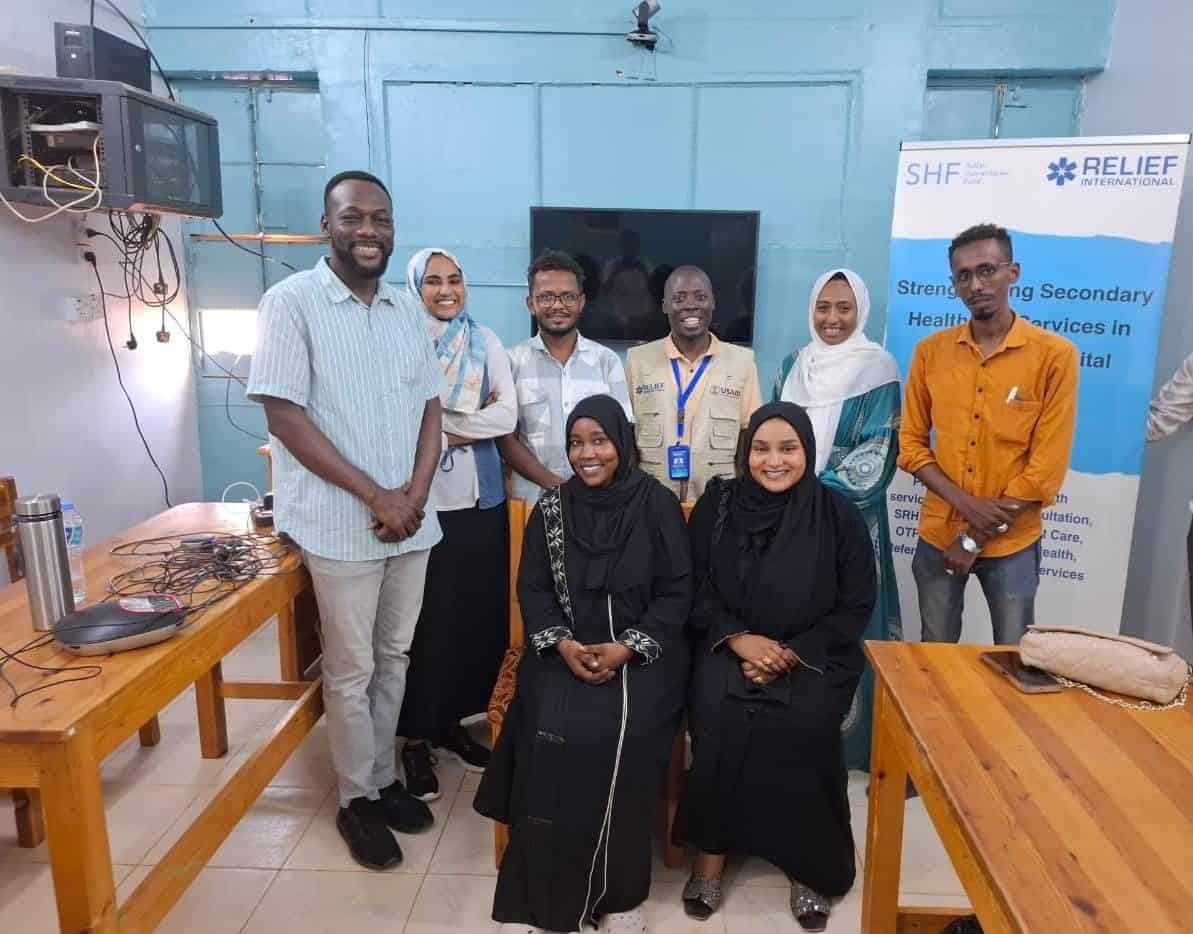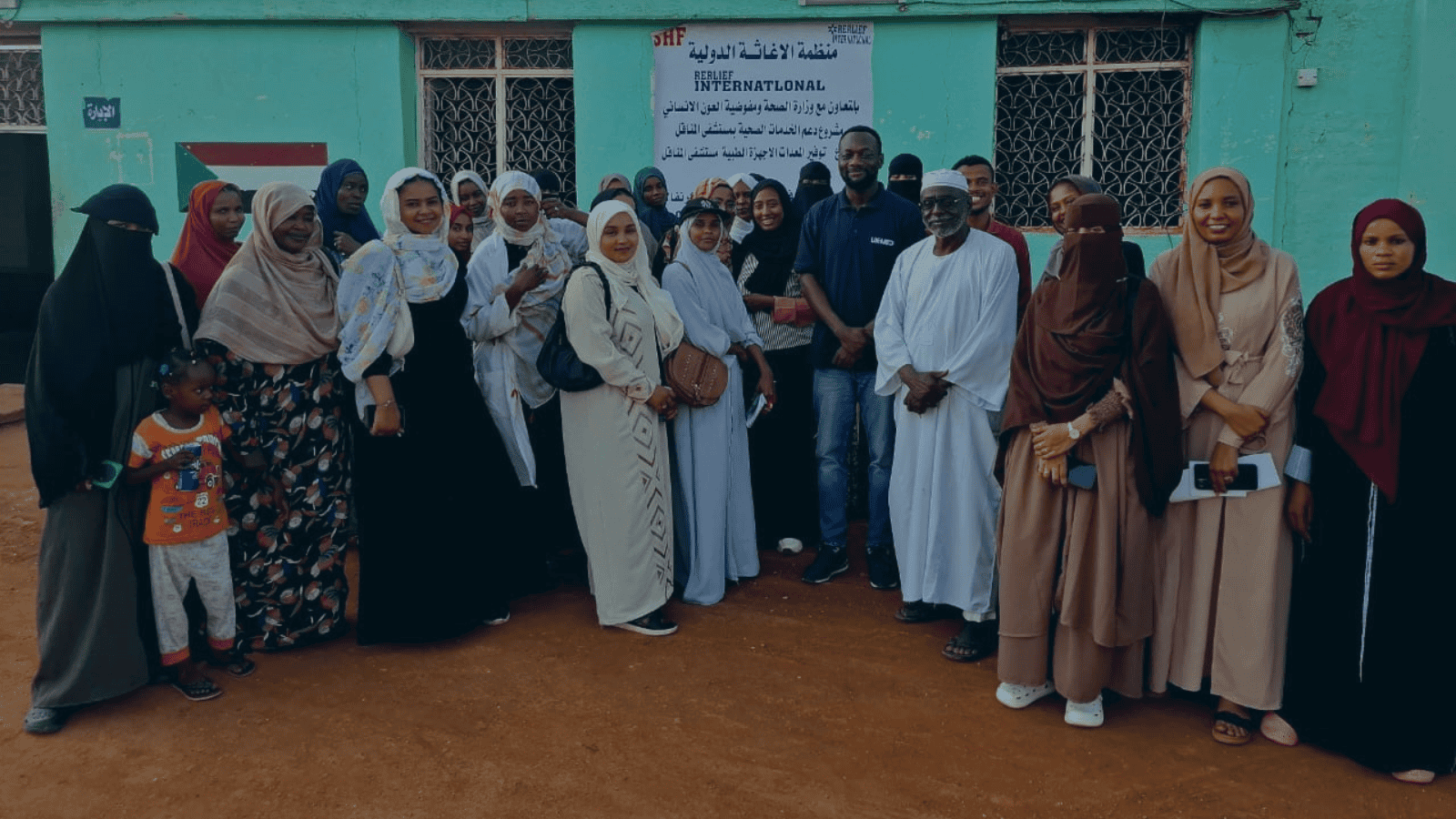
“In Sudan, doctors like me often face overwhelming challenges. Many of us have to make life-or-death decisions within seconds, but with limited resources and little formal training in how to prioritize patient care under such pressure.”
Context: Sudan’s Collapsing Health System
More than two years of war have shattered Sudan’s health system. Attacks on civilians, hospitals, and aid workers have left clinicians treating trauma, infectious disease, and obstetric emergencies with little support or supplies.
The WHO (2025) reports that over 70 percent of health facilities are non-operational or overwhelmed, with only one in seven hospitals functioning at full capacity. Since the conflict began, more than 600 attacks on health infrastructure have been recorded and 147 health workers killed (Insecurity Insight, 2025).
Outbreaks are compounding the crisis: over 18,000 cholera cases and 660 deaths have been reported in recent months (WHO, 2025). In many areas, malnutrition is rising and referral systems have collapsed. With hospitals cut off and staff isolated, telehealth and remote mentoring are now critical lifelines sustaining what remains of Sudan’s health system.

Our Response: The REACHES Telehealth Project Pilot
UK-Med’s REACHES Telehealth Project provides a lifeline connection between these isolated health workers and a network of NHS specialists and global specialists. Using low-bandwidth, secure digital platforms in partnership with Virtual Doctors, the project enables real-time case consultations, remote supervision, and targeted clinical training.
Delivered in partnership with Relief International and funded by the Sudan Humanitarian Fund, REACHES combines immediate medical support with long-term capacity-building. The project is operating at Al Managil Hospital, around 100 miles south of Khartoum. Al Managil, a small town in Jazirah, has seen hundreds of thousands of people seek refuge from fighting, overwhelming the fragile health system. After the attack on Wad Madani in December 2023, between 300,000 and 500,000 people fled the city, with many seeking refuge in Al Managil.
Through live mentoring, peer learning, and just-in-time technical guidance, local clinicians receive continuous support from experts in trauma care, maternal health, infection control, and mental health — ensuring safe, evidence-based care despite severe access constraints.

The REACHES pilot to date has:
- Reached nearly 70 clinicians, 75% of them female
- Provided 85 case consultations, 70% of them within 24–48 hours
- Facilitated 24 multi-disciplinary learning sessions, with 70% participants gained confidence in managing complex cases
- Facilitated 22 live webinars on topics including triage, trauma, cholera, IPC, rehabilitation, maternal emergencies
“I am a doctor in the medicine department at Al Managil Hospital. My role is to provide immediate assessment of ER patients,” explains Dr. Thoiba.
One case brought the challenge into sharp focus: a patient with dengue fever. “Without specialist advice, there was a real risk of poor healing or even disability.”

Through the Telehealth programme, Dr. Thoiba submitted the case via the app. The REACHES team reviewed it and gave step-by-step recommendations within twelve hours. Her feedback was: “the patient recovered, and I learned the management technique, and I now apply to other cases”.
Since then, Dr. Thoiba has submitted over ten cases, with more than three patients already recovering thanks to timely guidance. She concludes her experiences expressing that: “We are skilled clinicians, but without resources and specialist access, our capacity is limited. Telehealth bridges this gap. The knowledge will stay with us long after the project ends.”
Beyond the pilot: Scaling the model
The REACHES Sudan initiative is a pilot for UK-Med’s emerging Telehealth and Digital Capacity-Building Strategy. Future phases will:
- Expand clinician participation through a wider NHS and global expert network.
- Establish further telehealth partnerships to expand our reach
- Further integrate telehealth into emergency preparedness and response support.
Critically, by capturing and sharing learning across contexts, UK-Med is helping to establish telehealth as a standardised tool of humanitarian readiness.
Why this matters
When crises cut off access and expertise, telehealth becomes more than technology – it becomes the means to sustain the possibility of care. A voice guiding a difficult procedure, a conversation that steadies an overwhelmed doctor nurse, a training that rebuilds confidence after loss: each is a bridge between collapse and recovery. Your partnership can help us to strengthen those bridges – ensuring that wherever care is most at risk, connection and capability endure.
Partner: We welcome dialogue with philanthropic, institutional, and corporate partners interested in supporting this evolving area of humanitarian health. By investing in REACHES Sudan and UK-Med’s wider capacity-building portfolio, you can help to extend the reach of care and turn our emergency readiness into a shared global asset.


